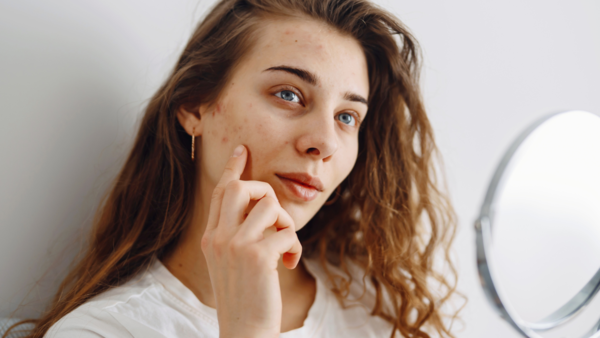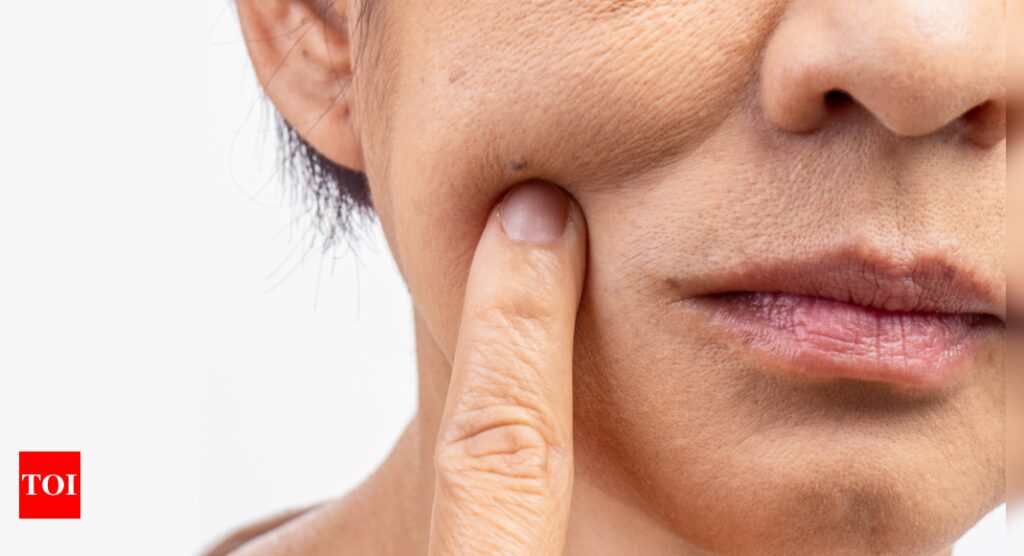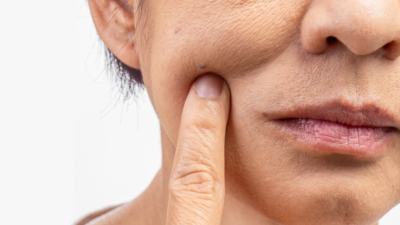We all want to have glowing, radiant skin that makes us feel confident and beautiful. However, in the hustle and bustle of daily life, we frequently overlook one of the simplest ways to accomplish it: staying hydrated. Hydration is one of the most effective ways to keep your skin looking healthy and radiant. In a world filled with beauty hacks and trends, it’s easy to overlook the fundamentals. What if the real secret to luminous skin is as easy as drinking enough water? Proper hydration isn’t just about quenching your thirst; it’s a key factor in achieving and maintaining beautiful skin. However, your skin has a language of its own in which it may show signs of certain health problems, including dehydration. Let’s understand the signs of dehydration that your skin might be experiencing.
5 telltale signs of dehydration on skin
Dull Skin: You may notice that your skin appears flat. Dull skin lacks moisture, resulting in the brilliance and shine that healthy skin possesses.
Fine Lines: Wrinkles are a natural part of aging, sun exposure, and heredity, and no amount of water will prevent them. However, extremely fine lines may be caused by dehydration. More moisture helps plump the skin, making faint wrinkles vanish.
Itching: Itching can occur on either dehydrated or dry skin. Dehydration-induced skin fissures can be itchy. It can also let germs in.
Sunken Eyes: You may see dark circles beneath your eyes. Without proper moisture, the skin surrounding your eyes might peel away from your eye sockets, resulting in a sunken look.
Pinch Test: The “pinch test” can help you determine whether you’re dehydrated. Pinch a little amount of skin on your arm between your thumb and forefinger. If you’re well hydrated, it should return to its original position a few seconds after you release go. If not, it’s time to toss back some water.
Why do dehydration signs show on skin?
Speaking on the crucial role of water in skin health, Dr. Siddhant Mahajan, Consultant Dermatologist at Kaya Limited, said, “Water is the major component of human bodies, accounting for around 60% of total body weight. Proper hydration promotes skin cell turnover, which helps to keep skin looking fresh and youthful. When your body is dehydrated, it retains extra water as a defensive mechanism, resulting in puffiness. Staying hydrated helps minimize puffiness, particularly around the eyes. It is essential for several body processes, including skin health. Some other benefits of adequate water intake include promoting cell development and regeneration.”
Additionally, hydrated skin is more resistant to environmental influences, including pollution, sun exposure, and severe weather. It serves as a stronger barrier to certain environmental stresses. Faster healing is another significant benefit of proper hydration. When dealing with sunburn, cuts, or other minor injuries, well-hydrated skin heals faster.

Is hydration important for skin health?
Drinking enough water can help improve skin tone, giving it a more even and vibrant appearance. Proper hydration promotes skin elasticity, decreasing the appearance of fine lines and wrinkles. Besides, water assists in cleaning out toxins from the body, which might otherwise contribute to skin concerns like acne and dullness. Hydrated skin is less prone to being dry and flaky. It helps to preserve the skin’s natural moisture balance, making it smooth and supple.
How much water should one drink in a day?
Shedding light on how much water should one drink each day for healthy skin, Swatee Sandhan, Senior Dietician, Jupiter Hospital, Baner, Pune, said, “A general guideline is to drink at least 8 glasses (approximately 2 liters) of water per day. However, this can vary among different individuals, as those who exercise regularly may need more water to compensate for fluid lost through sweat. In hot and humid climates, such as many parts of India, you may need to drink more water to stay hydrated. Fluid requirements can be calculated as 35 ml per kg body weight. This method gives precise water intake required. Personal factors, including age, weight, and comorbidities, can affect hydration needs. Simple liquids like jeera water, ajwain water, mint water, buttermilk, coconut water, and lemon water can help improve hydration.”
By staying hydrated, you not only nourish your body but also let your skin radiate its natural glow—proving that sometimes the best beauty secret is simply a glass of water.


